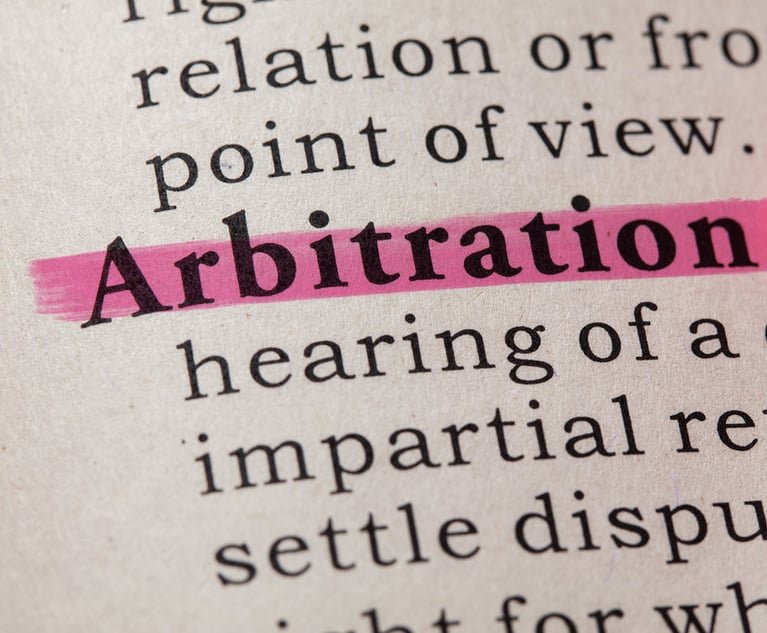Reversing arbitration to a public school, the Massachusetts Appeals Court sided with one of the school’s former teachers, concluding she was improperly discharged and denied tenure after taking maternity leave.
In a Friday decision, the Massachusetts Appeals Court reversed and vacated an arbitration decision in favor of Westwood Public Schools, which held that Pauline Chaloff hadn’t completed “three consecutive school years” in order to reach employment safeguards offered by professional teacher status. The arbitrator ruled that Chaloff’s partial year of teaching during her maternity leave did not count toward the overall time calculation, and her teaching contract was not renewed.
In Chaloff v. Westwood Public Schools, the Massachusetts Appeals Court agreed with Chaloff that the school violated the state’s parental leave statute under General Laws chapter 149, Section 105D, by failing to offer her tenure and essentially penalizing her for taking parental leave. According to the court, the statute holds that protected leave shouldn’t affect an employee’s seniority, length of credit served, or other rights of employment.
“Our law has evolved so that teachers do not have to choose between becoming parents or securing tenure,” said Justice Christopher P. Hodgens, who authored the opinion.
Justices William J. Meade and John C. Englander concurred.
Chaloff took 56 days of approved maternity leave during her second year teaching, in accordance with the parental leave statute. Following her leave, Chaloff returned to work at the school for the next two years. However, at the end of her third year she was told she didn’t receive tenure, or “professional teacher status,” as she failed to meet the three consecutive year requirement due to her maternity leave the prior year, according to the opinion.
Instead, Chaloff was told she would need to work another school year to receive PTS status. However, at the end of that fourth year, the school informed her they would not be hiring her for the next year. Chaloff petitioned for arbitration, arguing that her maternity leave shouldn’t require an additional year of employment to qualify for PTS.
However, the arbitrator concluded she hadn’t attain tenured status prior to being notified that her contract wouldn’t be renewed. Chaloff filed a complaint in the Superior Court, which confirmed the arbitration decision.
On appeal, the court concluded that while the 56 days of protected leave was excluded from the tenure calculation, Chaloff was correct that she had achieved tenure by working 56 days into the fourth school year, meeting the required three consecutive years under the statute.
According to the court, while time spent on protected leave can’t be counted towards the amount of time required for tenure, the arbitration decision disregarded Chaloff’s actual “length of service credit,” which cannot be affected by protected leave. Therefore, the panel concluded that the school’s formula for calculating PTS violated the parental leave statute.
“While a teacher invoking protected leave may create challenges for school officials concerned with classroom continuity and timely evaluations, administrative convenience cannot trump the statutory right to take parental leave, nor is convenience a particularly compelling excuse for discriminating against persons taking maternity leave,” Hodgens said.
The court disagreed with Westwood’s argument that the additional days worked in the fourth school year were insufficient to bridge the gap Chaloff’s protected leave created, as it was required to perform an evaluation of Chaloff’s performance based on a “complete” school year of at least 180 days, and she hadn’t worked for “three consecutive school years” like the statute required.
The panel determined that the school’s view was inconsistent with the parental leave statute, as Westwood penalized Chaloff for taking protected leave by requiring an additional school year, which deducted “from the length of service credit all days worked during the year in which leave had been taken.” The court further noted that the school’s position that it has subjected similarly situated teachers to the same fate didn’t aid its position, as it is well settled that excused absences don’t weigh against entitlement to tenure.
The school’s position was also inconsistent with PTS eligibility, concluding Chaloff satisfied the conditions after working an additional 56 days to complete the necessary three years of “regular and continuous employment.” The school’s argument that “administrative difficulties would result from PTS based on anything but ‘full school year increments'” was also shut down, according to the opinion.
Chaloff’s attorney, Daniel S. O’Connor of D.S. O’Connor & Associates, in Braintree, Massachusetts, said his client is very pleased with the court’s decision, and believes the case makes clear that “a teacher taking parental leave cannot be forced to work an additional full year of employment in order to get professional status.”
“The case answered a question that has been unanswered for decades concerning the impact of parental leave on the acquisition of professional teacher status,” O’Connor said. “In so doing, the court gave full effect to the Massachusetts Parental Leave law and ruled that the administrative burdens and inconvenience associated with taking parental leave do not override statutory rights and that school systems must accommodate leave within their evaluation procedures without penalizing employees.”
Westwood’s attorney, James M. Pender, of Morgan, Brown & Joy in Boston, did not immediately respond to requests for comment.
